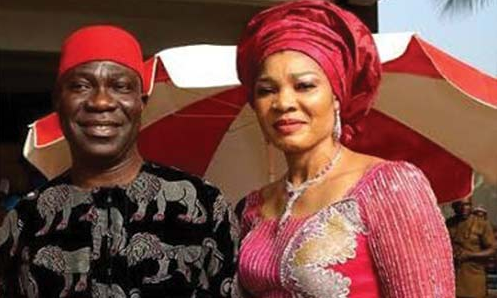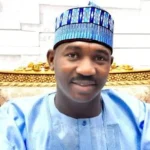One of the most important lessons I learnt during my residency training was during a paediatric rotation. I was in the SCBU (the ward for newborns less than 28 days old) and we were having a ward round teaching on an eight-hour old baby with multiple congenital abnormalities. It was one of the worst cases I have seen till date; the baby was terribly deformed and looked like something out of a horror movie: large head, skewed eyes, deformed nose, cleft lip and palate with barely formed limbs. The neonatologists were trying to find the correct syndrome for the child while the mother stood over the cot, looking lost. The head of the team, the consultant neonatologist suddenly moved close to us (the residents) and whispered to us, out of earshot of the mother:
‘If this were your child, would you want him to live?’
I remember shaking my head in the negative.
‘Good, so we do nothing’.
And ‘nothing’ we did, until the patient passed away some six hours later. The mother was consoled and the baby buried. Later, I learnt the baby had anencephaly (an underdeveloped brain) and that his chances of survival were very slim even in the best of centres. The baby’s vital signs were poor and any heroic act to prolong the life of the child would be sheer callousness and would result in draining the financial and emotional resources of the parents without any favourable outcome. Therefore, the decision to do nothing and let nature take its course, was in this case, the best solution.
Primum non nocere: First, Do No Harm.
As doctors, we have heard this term multiple times. The takeaway point of “first, do no harm” is that, in certain cases, it may be better to do nothing rather than intervening and potentially causing more harm than good. Personally, I have applied this lesson, to more than just my medical career. When I want to make a decision, and I am not sure of a favourable outcome or when the negative outcome outweighs the positive outcome, I do nothing. This lesson has saved me so much heartache overtime and I wish it was something I knew earlier.
Two days ago, news broke of Senator Ekweremadu’s arrest in the UK. The former Deputy Senate President, alongside his wife was arrested at the airport on his way to Istanbul Turkey, over allegations bordering on organ trafficking. The UK Metropolitan Police formerly charged the couple with conspiracy to facilitate the travel of another person for organ harvesting in the UK.
When the news broke, I felt overwhelming sadness for the Ekweremadu’s. Apparently, they had a daughter who was suffering from ESRD (End Stage Renal Disease) who needed a transplant. In their desperation to save their daughter’s life, they arranged for a boy/man who agreed to donate his kidney, to travel to the UK. On getting there however, their plan failed as the boy/man was not a match. Now this is where it gets messy- some news outlets say the boy is 15 years old and therefore a minor, making his consent to donate illegal; while others report that he is in fact a 21-year-old man who wanted to seek asylum in the UK after the foiled transplant, and therefore reported to the authorities that he was being brought to the UK for organ trafficking. It is now left for the lawyers and investigative journalists to solve this case.
I do not know the Ekweremadu’s, nor do I know their daughter. I only know that, like many others in this situation, they have been caught in a web of desperation, bad decisions and deceptions. They were ill-advised and made decisions based on their desperation to save a life.
Globally, organ donation has become increasingly accessible over the past twenty years. What was previously seen as a herculean process before, has become so simplified that preparation to surgery now take less than a month. Living donation provides important access to organ transplantation, which is the optimal therapy for patients with end-stage liver or kidney failure. Paired exchanges have facilitated thousands of kidney transplants and enable transplantation when the donor and recipient are incompatible. However, like we have seen in this case, it is not without its dilemmas.
Where donors are unwilling, financial compensation is used as a bait. This contradicts the very essence of organ donation which states the donors are not to be PAID for their donation, but rather their transportation bills, surgery and medication be settled by the recipient if he or she can afford to do so. Desperate people now pay handsomely to people willing to sell their organs. And can you really blame them? Do you know how many patients are moving around in Nigeria with kidneys they ‘Paid’ for? The money is called many names: ‘Gifts’, ‘gratitude’, ‘Ihsani’. When you have money and can afford to ‘dash’ a poor, relative or stranger a chance at a better life in exchange for his kidney, would you not snatch that option? Would you instead watch your child die while waiting for a match from a relative who will do it for altruistic purposes? How many people can boast of such faith and strong will?
Not many, that I can assure you.
This is where ‘First, do no harm’ comes in.
In my line of work, I have seen first hand how people desperately try to save their loved ones. Patients, relatives and friends running helter skelter, looking for a way out often resorting to immoral and illegal methods. On our part, I have also seen doctors trying all sorts of methods, some even unethical, just to save a dying patient.
I hold the unpopular opinion that life should not be saved at all costs. Try your best as a parent or doctor, but know your limit. Or do nothing. It is a painful decision, but one that must be done if we are to stay within legal, moral and religious boundaries. In May, the University of Lincoln, UK, appointed former Deputy President of the Senate, Senator Ike Ekweremadu as a Visiting Professor of Corporate Governance and International Linkages. What happens to that appointment now? What if he and his wife go to jail? What then happens to the daughter whom they were so desperate to save at all costs?
You see, in this life, we must weigh our decisions well and consider all outcomes. Agreed, it will take great strength, but we must learn not to allow desperation to rule us. Even if it is to save a life. Nothing in this world should be done at all costs. Sometimes, the best we can do, is to do nothing. Try your best and then wait.
Primum non nocere. Do No Harm.

 Join Daily Trust WhatsApp Community For Quick Access To News and Happenings Around You.
Join Daily Trust WhatsApp Community For Quick Access To News and Happenings Around You.

